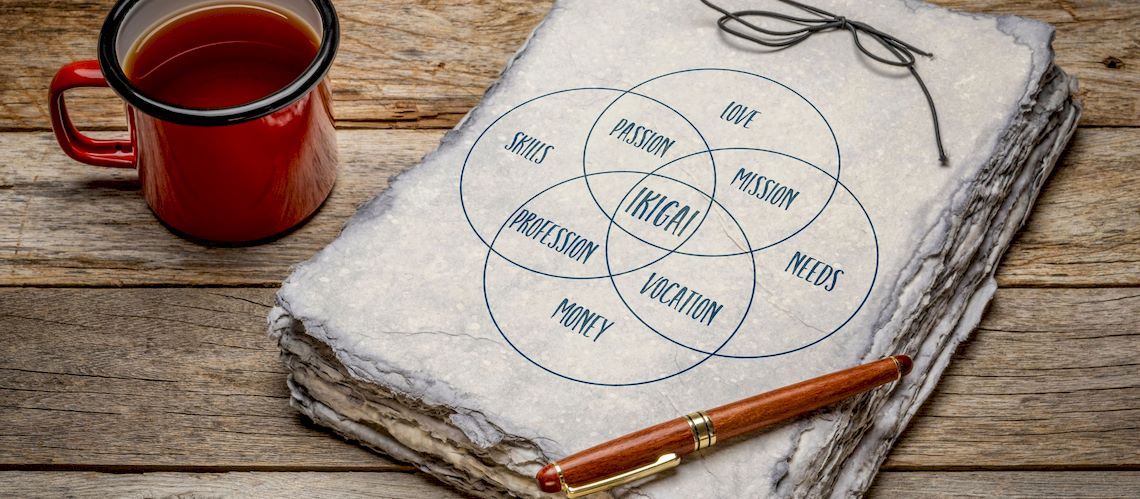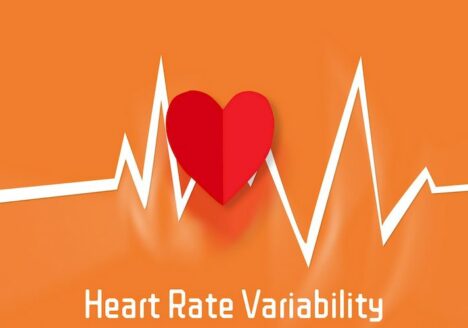Within the CORE Compass Framework, ikigai—a Japanese term meaning “a reason for being”—is central to achieving a balanced and fulfilling life. Ikigai provides a structured approach to discovering one’s purpose, harmonizing daily activities and long-term goals with core values, passions, and societal contributions. This alignment helps individuals navigate life with greater clarity, satisfaction, and resilience. The following article explores ikigai’s applications across CORE Compass dimensions, highlighting its impact on spiritual fulfillment, cognitive growth, emotional stability, and physical vitality.
Application in the CORE Compass
Essence and Spiritual Fulfillment
In the CORE Compass, the dimension of Essence and Spiritual Fulfillment reflects the alignment of one’s activities with deeply held values and beliefs. Ikigai supports this dimension by offering a pathway for individuals to discover and cultivate their life’s purpose, which is essential for achieving inner peace and contentment. According to Sone et al. (2008), a sense of purpose is linked to overall well-being, helping individuals feel that their lives have value and direction.
In practice, ikigai encourages individuals to engage in activities that resonate with their values and beliefs, fostering a deep sense of satisfaction and fulfillment. Research by Shirai et al. (2022) and Tanno et al. (2009) highlights how a purpose-driven life can contribute to spiritual resilience, helping individuals find meaning even during life’s challenges. This sense of fulfillment often enhances emotional resilience and spiritual well-being, reinforcing the CORE Compass dimension of Essence.
Curiosity and Cognitive Growth
Exploring and living one’s ikigai often involves continuous learning and intellectual engagement, fostering Curiosity and Cognitive Growth. The pursuit of purpose can inspire curiosity, encouraging individuals to develop new skills, seek knowledge, and expand their intellectual boundaries. Studies such as those by Fido et al. (2019) and Wilkes et al. (2022) support the idea that a sense of purpose can stimulate cognitive engagement, promoting personal growth and intellectual vitality.
The mental stimulation associated with ikigai helps individuals remain curious and engaged in life, which is crucial for lifelong cognitive health. Engaging in intellectually fulfilling activities aligned with one’s ikigai not only supports cognitive growth but also contributes to a heightened sense of satisfaction and personal fulfillment. This approach aligns with the CORE Compass dimension of cognitive growth by nurturing a mindset open to exploration and development.
Resilience and Emotional Equilibrium
Living according to one’s ikigai enhances Resilience and Emotional Equilibrium, as individuals with a clear sense of purpose are often more emotionally stable and resilient in the face of adversity. Studies by Wilkes et al. (2022) and Okuzono et al. (2022) demonstrate that individuals who have a strong sense of purpose report lower levels of anxiety and depression, which contributes to greater life satisfaction and emotional balance.
Having a defined ikigai provides individuals with a source of inner strength and motivation, helping them maintain a balanced emotional state even in challenging situations. This stability is particularly important for resilience, as it enables individuals to navigate life’s obstacles with a sense of purpose and composure. Ikigai, therefore, plays a vital role in achieving emotional equilibrium within the CORE Compass, fostering an inner resilience that supports well-being.
Operational and Physical Vitality
A purpose-driven life often promotes Operational and Physical Vitality by encouraging behaviors that support health and reduce stress. Research by Okuzono et al. (2022) and Goto (2024) indicates that individuals with a clear ikigai are more likely to engage in health-promoting activities, such as regular exercise, balanced nutrition, and stress management, all of which enhance physical vitality. These individuals often report better physical health outcomes, including lower risks of cardiovascular disease, due to the motivational boost that comes from aligning actions with values and passions.
Furthermore, ikigai can reduce chronic stress, a known contributor to many physical ailments, by fostering a positive mindset and emotional resilience. This reduction in stress leads to better physical health and increased vitality, enabling individuals to pursue their goals with greater energy and focus. Thus, ikigai aligns with the CORE Compass dimension of Operational and Physical Vitality, promoting a lifestyle that supports both mental and physical health.
Benefits within CORE Compass
The integration of ikigai within the CORE Compass Framework offers numerous benefits across key dimensions of well-being:
- A Deeper Connection to Purpose and Values: Aligning daily activities with one’s ikigai fosters a strong sense of personal meaning, promoting a life aligned with core values.
- Enhanced Emotional and Spiritual Well-Being: By fulfilling one’s sense of purpose, individuals achieve emotional stability and spiritual satisfaction, supporting resilience and spiritual fulfillment.
- Improved Motivation and Engagement: When activities are aligned with ikigai, individuals are more motivated and engaged, leading to increased productivity and life satisfaction.
- Greater Resilience: A strong ikigai offers inner strength, enabling individuals to overcome adversity with composure and adaptability.
How to Integrate Ikigai in CORE Compass
Achieving alignment with one’s ikigai requires thoughtful reflection, visualization, and continuous adjustment. Here are some methods to help integrate ikigai into daily life:
- Reflection: Spend time exploring the four elements of ikigai—what you love, what you are good at, what the world needs, and what you can be rewarded for. Reflecting on these elements helps clarify your purpose.
- Visualization: Create a Venn diagram to visualize the intersection of these four elements. This can help you identify where your passions, skills, societal contributions, and rewards align, forming the core of your ikigai.
- Alignment: Ensure that your daily activities, routines, and long-term goals are consistent with your ikigai. Aligning your actions with your identified purpose can increase fulfillment and reduce stress.
- Evaluation: Regularly assess your pursuits and adjust them as needed to stay true to your ikigai. This process helps maintain focus and purpose even as life circumstances change.
By following these steps, individuals can build a lifestyle that is not only aligned with their values but also continuously adaptive to personal growth and external changes.
Conclusion
Integrating ikigai within the CORE Compass Framework provides a holistic approach to achieving spiritual fulfillment and overall well-being. By aligning activities with core values and passions, individuals can navigate life with a profound sense of purpose and satisfaction. Research supports ikigai’s positive impact on mental, emotional, and physical health, highlighting its role in fostering resilience, curiosity, and spiritual well-being. Through the CORE Compass Framework, ikigai offers a structured pathway to a fulfilling life, where each action aligns with a deeper purpose.
References
- Garcia, H., & Miralles, F. (2017). Ikigai: The Japanese Secret to a Long and Happy Life. Penguin Books.
- Buettner, D. (2010). The Blue Zones: Lessons for Living Longer from the People Who’ve Lived the Longest. National Geographic Society.
- Sone, T., Nakaya, N., Ohmori, K., Shimazu, T., Higashiguchi, M., Kakizaki, M., … & Tsuji, I. (2008). Sense of life worth living (ikigai) and mortality in Japan: Ohsaki Study. Psychosomatic Medicine, 70(6), 709-715.
- Wilkes, J., Garip, G., Kotera, Y., & Fido, D. (2022). Can ikigai predict anxiety, depression, and well-being? International Journal of Mental Health and Addiction, 21(5), 2941-2953.
- Fido, D., Kotera, Y., & Asano, K. (2019). English translation and validation of the Ikigai-9 in a UK sample. International Journal of Mental Health and Addiction, 18(5), 1352-1359.
- Goto, T. (2024). Biopsychosocial consideration of ikigai in older adults in Japan through a cross-sectional study. Geriatrics, 9(3), 78.
- Shirai, K., Kimura, T., Ikehara, S., Tamakoshi, A., & Miyazaki, J. (2022). Purpose in life (ikigai) and employment status in relation to cardiovascular mortality: the Japan Collaborative Cohort Study. BMJ Open, 12(10), e059725.
- Tanno, K., Sakata, K., Ohsawa, M., Onoda, T., Itai, K., Yaegashi, Y., … & Tamakoshi, A. (2009). Associations of ikigai as a positive psychological factor with all-cause mortality and cause-specific mortality among middle-aged and elderly Japanese people: findings from the Japan Collaborative Cohort Study. Journal of Psychosomatic Research, 67(1), 67-75.




